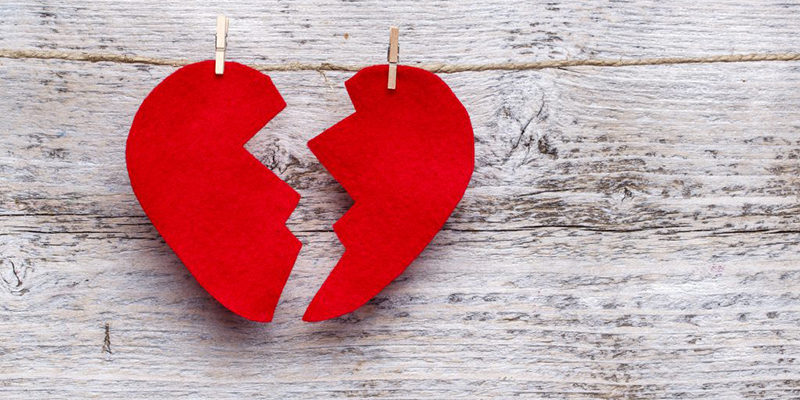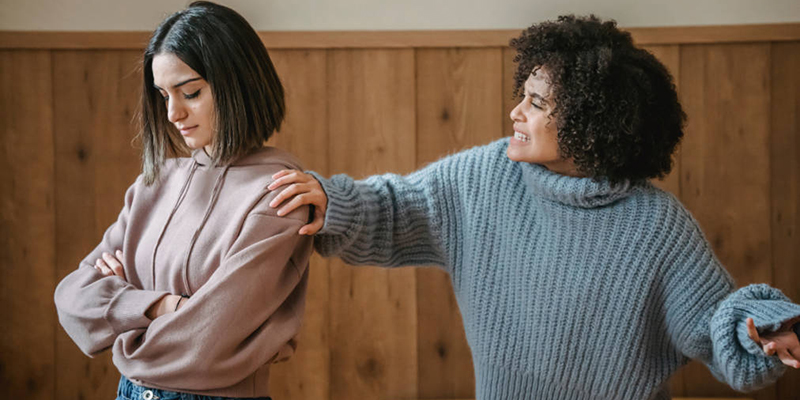Healing After A Friendship Breakup: How To Move On And Find Peace
Ending a friendship often goes unnoticed. Love breakups have support, but losing a friend hurts just as much. Friends know your secrets and are always there for you. Losing them might leave you feeling lost and lonely, but you can recover from this pain—just understand your emotions and take care of yourself.
Ending a friendship often goes unnoticed. Love breakups have support, but losing a friend hurts just as much. Friends know your secrets and are always there for you. Losing them might leave you feeling lost and lonely, but you can recover from this pain—understand your emotions and take care of yourself.
1. Acknowledge Your Pain
The first step is to accept the pain. Ending a friendship can hurt as much as ending a romantic relationship. The brain treats both the same when it comes to emotional pain. You may feel betrayed, abandoned, or empty. If you are going through those emotions, it is essential to look at yourself.

Necessary: Validate your feelings. Don't tell yourself your emotions don't matter because it was only a friend. You shared memories, secrets, and your life. It's okay to feel sad, angry, or confused. This is part of the process. A pen can be your ally.
Writing down your thoughts helps you organize them, enables you to understand what you're going through, and gives you some emotional relief. Write about your memories—your successes, failures, and how you feel right now.
2. Avoid The Trap Of Rumination
Every memory of your friendship is like a movie you can watch again. You may wonder how things could have been different or if some moments showed the end was coming. Thinking about the past a lot can get you stuck there. But reflecting on the past can be good. Just do it a little.
1. Limit your time spent looking at old messages and photos. If they make you sad, hide them for now. This is not about the person but about your healing.
2. Focus on the present. Your mind often goes over past talks and events. Try to be aware of your surroundings instead. Take slow breaths and notice what's around you. This will stop your mind from dwelling on the past and bring your attention back.
3. Take Care Of Yourself
Self-care is more than just relaxing. It's about caring for your emotions and body. Even small actions can make a difference, especially in tough times.
1. Stay active. Physical activity helps your emotions and mental well-being. Sports like yoga, running, or a leisurely walk produce endorphins that improve your mood and reduce stress. Feel free to try new sports or continue your old ones.
2. Stick to your routine. Your habits may slip away when you feel down. Even if you don't feel like it, take a deep breath and stick to your schedule. Get up, take a shower, and be yourself. This can bring change and normalcy back to your life.
4. Reach Out To Someone
It may be true that you're not at your best now. This can make you want to avoid others. But the important thing is to talk to someone who can help you well. Don't cut yourself off from everyone, even if that's what you need.
1. Confide in People You Trust: Talking to someone who isn't as close to your friend is better. This could be a family member, friend, or coworker. This can help you express yourself and validate your feelings.
2. Consider Getting Professional Help: Do you need help getting past this problem with just your peers and family? Then, you should reach out to a counsellor. A professional can offer one-on-one counselling and suggest ways to deal with the breakup or move forward.
In therapy, you can express your feelings without fearing being judged.
5. Reflect Without Self-Blame
Figuring out why a friendship ended can help you recover. This is different from just thinking about it. It's easy to get stuck feeling bad about yourself or wishing things were different.

Learn from your experiences: Admit when there are issues. If you or your friends have repeated behaviours, look at them closely. This can help you grow personally. There may have been communication problems or different expectations. Understanding these dynamics can make you a better friend going forward.
Forgive yourself: Telling yourself you caused the breakup can be good. But don't let it become a problem. You are human, and mistakes happen. You are letting go of the pain. The past can't be changed. This helps you move on.
6. Try New Things And Make New Memories
The loss of a close friend is a big deal. When they're gone, you may feel a gap. But don't leave it empty. Instead, try new things to fill that space.
Explore New Hobbies: Do what you've thought of doing but have not had time for. Learn a new language, cook, hike, or join a dance class. New hobbies can give you a fresh outlook on life. They can also connect you with new people.
Reconnect with Others: We sometimes push away friends when we focus too much on one friendship. Contact people you haven't seen in a while and see if those relationships can become active again.
Volunteer or Get Involved: Helping others can take your mind off your problems. Volunteer at an animal shelter or food bank or do community work. This not only helps others but also makes you feel purposeful and balanced.
7. Manage Your Social Media Exposure
Social media can be tricky when you're trying to get over someone. Seeing your ex-friend's posts or photos of mutual friends can make you sad or upset.
Take a break from social media for a while. This can help you feel more alive and stop comparing your life to others. If you can't quit altogether, mute or unfollow the people causing drama. When you do see them, a simple nod or smile is enough. You don't have to force a conversation if you're not ready.
8. Forgive And Let Go
Anger, bitterness, and resentment can prevent you from overcoming your pain. Forgiving your ex-friend (and yourself) doesn't let them off the hook. It shows you're making a conscious choice to prioritize your mental health.
Release the Resentment: If someone doesn't apologize or explain why, you must let go of the anger. This is for your health, not just for them. You have to heal and move on.
Accept the Unresolved: Sometimes, friendships end without a reason or goodbye. Knowing everything can make it easier. But it can also help you feel more at peace.
9. Remember That New Beginnings Are Ahead
It's hard to see the bright side when going through a breakup. But your friendship ending can lead to meeting new people and growth. This should be comforting. There are more people to befriend, more experiences to enjoy, and more laughter to come.
Stay open-minded. Don't let fear stop you from making new friends. With time, you'll find people who appreciate you. Appreciate the lessons learned. This friendship taught you things, even though it ended. It could have shown you how to be a good friend or the kind of people you want around. Remember that you have these experiences.
Remember…
Friendship separation is like a journey. Like healing, patience is vital. Be kind to yourself. Get help when needed. Take it slow, one small step at a time.
Your friend will always be part of your good memories. The negative feelings will fade. New people and experiences will become part of your life. Your story isn't over - it's starting a new chapter.
Stay positive, take care of yourself, and treat others with respect, just as you want to be treated.